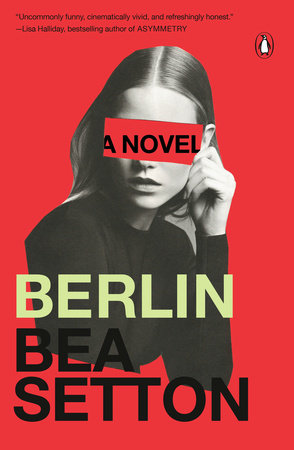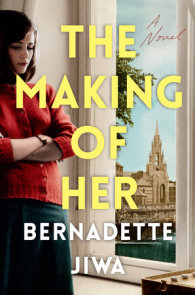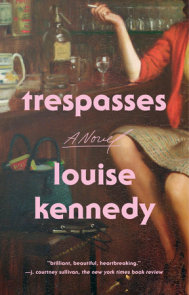READERS GUIDE
Questions and Topics for Discussion1. Daphne is both self-aware and self-obsessed. Did you find her to be a sympathetic character at any point? Did you like her or find her insufferable, or both? Did you ever find yourself adjusting your perception of her? If so, when and why?
2. The novel features much color and detail about city life, bringing atmosphere and dimension to the setting. Despite wanting to turn over a new leaf upon her arrival, Daphne can’t seem to escape unpleasant experiences. Is this book a love letter or a piece of hate mail to Berlin? Why?
3. Daphne is an unreliable narrator and she lies constantly—both to herself and to others. She lies about her job and circumstances in order to secure a flat. She borrows clothes that aren’t hers, and she reads EG’s diaries. Why do you think she acts as she does? Does it endear us to her, or does it only serve to alienate her from the reader?
4. Was Daphne ever in real danger in Berlin? What do you think of the character of Richard Grausam? Is he a real threat, or is Daphne exaggerating?
5. Physical appearance and body image weigh heavily on Daphne. To what extent is the question of female embodiment explored in the novel? Discuss.
6. Daphne is educated and comes from a privileged background. How might Daphne’s story have been different if she didn’t have the financial support of her parents?
7. Daphne is often ironic and self-deprecating. Did you enjoy the novel’s dark humor? What is your overall impression of the book? Did you find Berlin to be sad, funny, entertaining, or something else entirely? Why?
8. What did you make of Daphne’s classification system of men on online dating sites? Do you agree with the categories she creates? How do you think she would categorize the friends in her life?
9. “What I wanted to say was that my life in Berlin was not what I had hoped. My existence and thoughts were dominated by indescribably banal worries. Does soya milk or oat milk contain more fat? Is Big Red gum sugar-free? Am I buying the right things? I had expected the tribulations of adulthood to be rather more . . . picturesque . . . I had, in short, great expectations. It wasn’t that I wished something worse had happened—of course not—but I expected my suffering to feel redemptive in some way. I thought life was meant to be meaningful, even when it was hard.”
Daphne says she wishes her life were more epic and dynamic. Is this perspective a vestige of immaturity in Daphne? Or do you find it relatable?
10. If you were one of the narrator’s friends, what would you say to Daphne? What do you make of her relationships with those closest to her (Kat, Milosh, Gabriel, et al.)?
11. This novel begins and ends with a resolution to make a fresh start. Do you find Daphne’s constant reinvention inspiring, or is it another form of self-destructive behavior? Explain.
12. Has Daphne learned something by the end of the book? Were you left with the feeling that she is doomed, or is there hope for her yet?




















